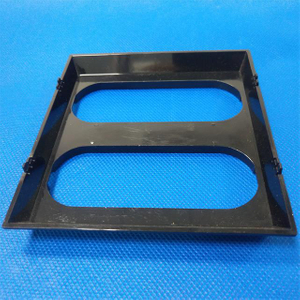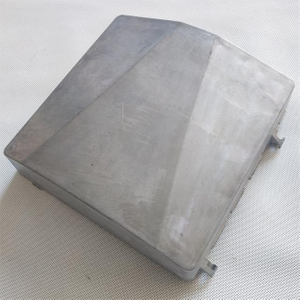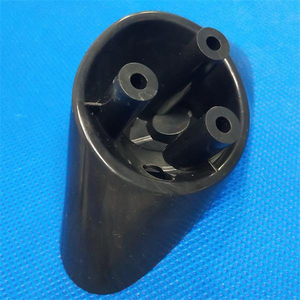Due to their excellent resistance to corrosion, low weight, and high electricity-to-weight ratio, aluminum alloys are relatively sought after in diverse sectors. Because of their precise features, aluminum alloys 7075 and 6061 are typically employed inside the pharmaceutical industry. Aluminum 6061 vs. 7075 Aluminum, Let's have a look at these two categories of alloys in extra detail and compare their functions, positives, and drawbacks.
Aluminum 6061 vs. 7075 Aluminum - 7075 Aluminum
Composition
• lead to increased strength, with zinc serving as the main alloying ingredient.
• A small quantity of magnesium, copper, and chromium are added for strength and resistance to corrosion.
Applications
• Aerospace industry: Aircraft structures, wings, and fuselage components.
• High-stress structural parts: Bike frames, rock climbing equipment, and firearm components.
Strengths
Outstanding power and weight
7075 aluminum has an impressive power-to-weight ratio, making it popular for applications that require weight reduction without sacrificing structural integrity because strength and interior weight balance are important in aerospace engineering, so fuel efficiency and overall performance At first glance, this feature contributes significantly.
High Tensile Strength
The tensile strength of 7075 is very impressive and equivalent to low alloy steels. This feature assures that the product can withstand high pressure without breaking or failing. It is particularly helpful in situations where large loads or stresses are applied to the material; it Provides reliability and durability in high-stress situations.
Excellent stress and fatigue resistance
7075 aluminum exhibits outstanding stress and fatigue resistance, making it highly durable in applications subjected to cyclic loading or sustained vibration. This property is particularly valuable in materials as important as in aircraft design.
Weaknesses
• Limited corrosion resistance compared to other aluminum alloys.
• Not as easily weldable as 6061.
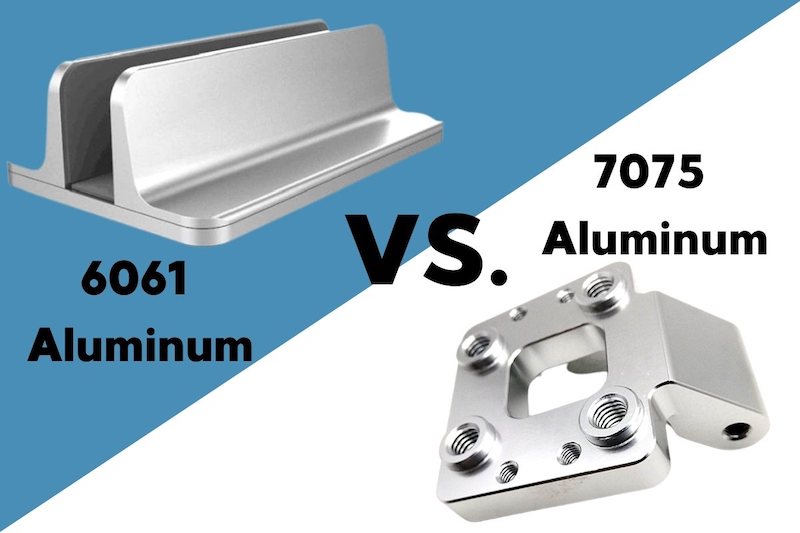
Aluminum 6061 vs. 7075 Aluminum - 6061 Aluminum
Composition
• Alloyed with magnesium and silicon.
• Balanced composition for versatility and ease of fabrication.
Applications
• General-purpose structural components: Aircraft, boats, bicycles, and automotive parts.
• Extruded shapes for architectural applications.
Strengths
Outstanding weldability
One of 6061 aluminum's most notable qualities is its exceptional weldability. When welding is an essential component of the production process, this capability is preferred. Whether in the automotive or construction industry, the ease of welding makes the 6061 an efficient and reliable connection, contributing to quality construction.
Excellent corrosion resistance
6061 exhibits high corrosion resistance, making it versatile and suitable for outdoor marine applications. This characteristic ensures that buildings and components 6061 materials can withstand the environmental weather conditions without deterioration, increasing their longevity and strength.
Balance of strength and balance
The design of the 6061 balances strength and rigidity. This balance is useful where a combination of strength and ductility is important. The ability of 6061 to withstand moderate pressure drops and be rapid manufacturing and machinable makes it ideal for a wide variety of common applications.
Weaknesses
• Lower strength compared to 7075.
• Not as resilient under high-stress conditions.
Q&A Section About Aluminum 6061 vs. 7075 Aluminum
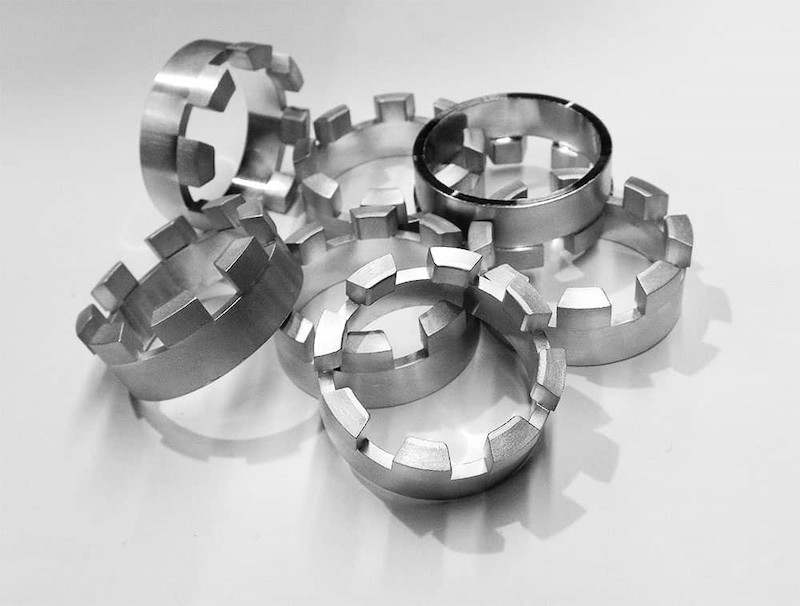
Aluminum 6061 vs. 7075 Aluminum - Which alloy is better for applications requiring high strength?
For high-power demanding applications, the choice between the 7075 and 6061 varies depending on the specific requirements of the project. 7075 Aluminum emerges as the preferred option when high-strength characteristics are paramount. Its strong structure of zinc and other alloys provides superior tensile strength comparable to lesser alloy steels. Thus, in aerospace engineering, where stringent power requirements are unthinkable, 7075 remains the treatment of choice, ensuring structural accuracy and reliability.
In what applications is the 6061 most commonly used?
Known for its versatility and ease of fabrication, 6061 aluminum is widely used in a variety of industries. Its abundance in general applications is particularly noteworthy, making it great in the automotive industry for products such as engine parts, chassis, etc. Furthermore, its malleability and machinability make it a desirable element in construction efforts that often require complex design and custom designs from materials to rapid protoyping, mechanical parts. Its flexibility is a cornerstone of projects that require a balance of energy and performance.
Aluminum 6061 vs. 7075 Aluminum - Can this alloy be anodized?
Aluminum alloys 6061 and 7075 each work well with anodization techniques. An oxide layer is fashioned at the surface of aluminum through the manner of anodization, which increases corrosion resistance and permits aesthetically captivating customization. Because of this, these alloys can be used in situations where an extra layer of corrosion protection is needed, such as for components that are exposed to exterior structures or certain environmental conditions.
Aluminum 6061 vs. 7075 Aluminum - Are these alloys suitable for marine environments?
Due to the corrosive nature of salt water, the suitability of aluminum alloys for the marine environment is an important consideration. In this respect, 6061 aluminum is generally preferred, with admirable resistance to corrosion over 7075. Incorporated in shipboard and offshore structures, The marine industry benefits from the ability of 6061 to withstand harsh conditions of salt water, which continually brings the edge, making it reliable for such applications.
Exceptional facts of Aluminum 6061 and Aluminum 7075
7075 Aluminum
Crucible Built-in Space: Despite its extensive use in the aerospace industry, aluminum 7075 has gotten off to an interesting start. The beginning purpose of production was for use in planes; the generation was evolved and synthetic at some point in WW2. Due to its unprecedented strength and weight, this alloy has dominated the aerospace enterprise and plays a vital role in the improvement of aviation.
Secret Agent Alloy: Nicknamed "Secret Agent Alloy", 7075 has sometimes been used and used in covert military projects. Its high strength and light weight make it ideal for applications that require durability and discretion, and it's versatility beyond traditional applications.
6061 Aluminum
Alumillicious World of Bicycles: 6061 aluminum is a favorite material in the bicycle industry. Many high-quality bike frames have been developed in the 6061 due to their excellent combination of strength and lightweight. This alloy contributes to the bikes' aesthetics and performance with a perfect combination of form and function.
Recycling Revolution: In the era of sustainability, aluminum 6061 stands out as a recyclable winner. Because it can be easily recycled without compromising its integrity, it fits in with the global push for environmentally friendly products. Its reusability helps reduce the environmental footprint, making it a responsible choice in the construction environment.
Conclusion of Aluminum 6061 vs. 7075 Aluminum
The aluminum choice between 7075 to 6061 relies upon the specific requirements of a given application. Even as the 7075 excels in high-pressure conditions, the 6061 gives a versatile and easy-to-perform alternative. Understanding the nuances of those alloys is essential for engineers, fabricators, and hobbyists to make sure they select satisfactory materials for undertaking success, whether flying in the air or helping ordinary systems. The 7075 and 6061 stand as notable evidence that aluminum is bendy and beneficial within the cutting-edge international.
TEAM MFG offers CNC machining services and high pressure die casting services for your aluminum parts, contact us today!













